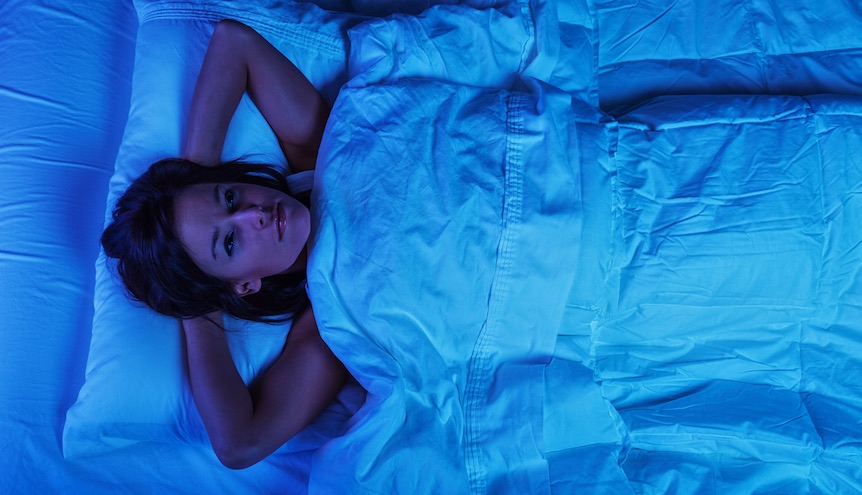We’ve all been there. It’s 2 a.m., you’re lying awake in your bed in the dark, staring at the ceiling, bored out of your mind and unable to get back to sleep. Or worse, despite getting to bed at a reasonable hour, the zzzs just aren’t coming.
Enough time goes by and inevitably, you reach for your phone to distract you. You scroll Instagram or Twitter or read your decades old posts on blogspot.com — pick your poison. But this kind of time sucking behavior, coupled with the brightness of the screen, will only serve to stimulate your brain and keep you up longer, says Dr. Jocelyn Y. Cheng. We asked the neurologist, who works at NYU Langone’s Comprehensive Epilepsy Center-Sleep Center, the best practices for getting back to sleep when you’re stricken with insomnia.
Give it 20 minutes, then get out of bed
If you’ve been awake for around 20 to 30 minutes, that’s enough time to know that falling back asleep is not going to happen any time soon, Cheng says. At that point, get out of your bed and your bedroom and do something in the dark or under dim light that’s “not too engaging, but can distract you until you might feel sleepy again.” Only then, return to bed. If you still can’t fall asleep after 20 minutes, get up and do the same thing again.
Stimulus control
What should you do to keep busy while you’re out of bed, trying not to fixate on the fact that you can’t sleep? Cheng explains a technique called “stimulus control,” which means staying away from any activity that might stimulate your brain. Cheng recommends reading or writing under dim light, meditating or doing gentle yoga; but watching Netflix, scrolling your phone, or using any device with a brightly lit screen you can’t adjust signals to your brain — stay awake, Cheng explains. It can also confuse your circadian rhythm and melatonin levels.
Turn your bedroom into a zone for sleep and sex, only
FYI: “You want to keep your bedroom environment a place where literally only two things occur: sleep and sex,” says Cheng. “It shouldn’t be used as an office, a living room where you sit and read, or snack, or anything like that.”
This is admittedly a toughie for anyone who lives with roommates, but it’s worth a try. Otherwise, she explains, your brain will associate your bedroom with a place to do activities. (There’s even a type of insomnia, called environmental insomnia, wherein people can only fall asleep outside of their bedroom, Cheng says.)
Better luck tonight, folks.

























